7 Essential Dietary Supplements to Help Your TMJ
There are some excellent, natural supplements available for TMJ sufferers.
Unfortunately, typical treatments for TMJ often include harmful relaxants, anti-inflammatory medications or even invasive jaw surgery.
You're far better off opting for natural dietary supplements that can reduce the inflammation and pain associated with TMJ without causing other problems.
We've listed the most effective TMJ supplement options below.
If you don't know what Temporomandibular Joint Disorder (TMJ) is, it's a painful condition affecting the temporomandibular joint in the jaw.
This is the hinge that joins your jaw to the upper part of your skull.
TMJ issues can greatly reduce your quality of life by causing headaches, jaw pain, difficulty chewing and eating, dizziness and limited range of joint movement, among other symptoms.
We hope that some of the supplement recommendations below work for you.
UPDATE: Before you read on, we highly recommend this natural solution to TMJ issues.
Natural supplements for TMJ (TMD)
Omega-3 Fatty Acids
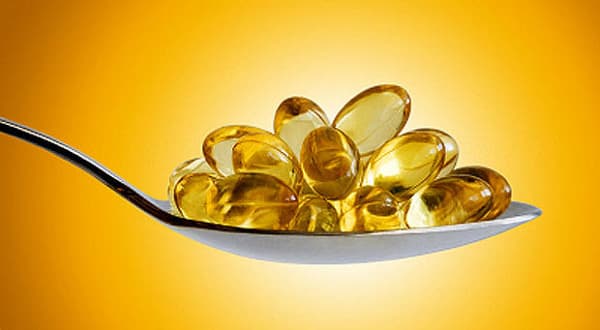
Omega-3 fatty acids, also known as omega-3 fish oils, provide a huge range of benefits for brain and heart health, joint function and, most importantly for TMJ sufferers, *inflammation.
In fact, multiple scientific studies have shown omega-3 fatty acids to be equally effective at easing pain and inflammation as the non-steroidal anti-inflammatory drug ibuprofen.
This means you can get excellent pain relief and a reduction in inflammation and swelling through a natural, nutritional source, without any side effects.
Many people know that fish oil is a good source of omega-3’s, as omega-3 oils make up a varying percentage of the content of fish oils. The two major omega-3 fatty acids in fish oils are EPA and DHA, and it’s important to take note of the quantity of each of these when choosing your supplement.
EPA is the omega-3 fatty acid responsible for reducing inflammation and improving TMJ, so this is the one you want to look out for.
For vegetarians, or others who can’t stomach the concept of fish oil, flaxseed oil is a good source of another omega-3 fatty acid, ALA. Just bear in mind that ALA needs to be converted to DHA and EPA in the body, so it's not as effective as taking fish oil.
Vitamin D3
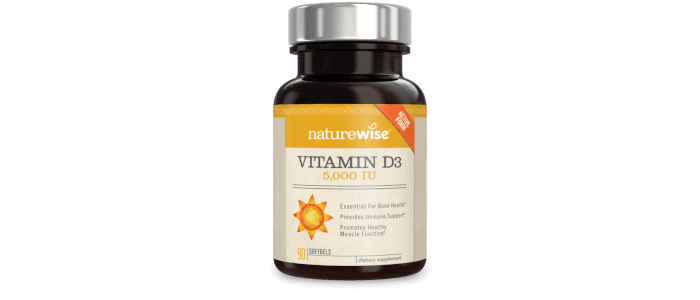
Many sufferers of TMJ have been surprised to notice an improvement in their TMJ condition after taking Vitamin D3 supplements for what they thought was an unrelated Vitamin D deficiency.
Vitamin D plays a vital role in our health and well-being, particularly in the area of bone health and muscle function, both of which are involved in the pathology of TMJ.
The good news: Our primary source of vitamin D is sunlight.
Through a series of chemical reactions that occur when sunlight strikes our skin, the body makes our own vitamin D with a reasonable amount of sun exposure.
However, with 50% of the population being vitamin D deficient, it's clear that our body’s natural mechanism of vitamin D production is not adequate for many of us. This is usually a problem for those who spend a lot of time indoors, people who usually cover their skin when in the sun, or those who are naturally dark skinned.
In short, we don't get enough sun.
Supplementation with vitamin D3 can help replenish your stores when you're deficient, having a beneficial flow on effect to TMJ by helping to decrease pain levels, improve feelings of well-being and strengthen your bones and joints.
Turmeric
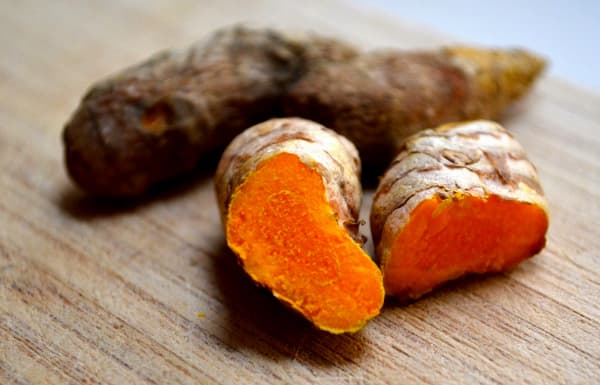
While most people would know this bright yellow spice as a delicious ingredient of Indian curries, this flavorful relative of ginger is actually a powerful anti-inflammatory agent, with a history that spans thousands of years in Ayurveda and is starting to get well-deserved attention in conventional medicine.
In a 2007 study, the powerful anti-inflammatory ingredient in turmeric, curcumin, was found to significantly reduce pain, swelling and inflammation, with zero harmful side effects.
Curcumin selectively blocks the enzymes that contribute to those painful symptoms, and has shown itself to be an effective anti-inflammatory agent that assists in joint pain.
Turmeric has a number of other impressive health benefits as well, including fighting infections and cancer, and soothing digestive complaints.
Turmeric's available in supplement form.
Calcium and Magnesium
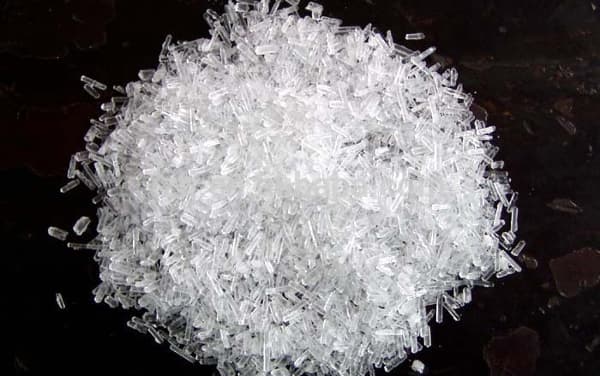
While actually two different minerals, when it comes to helping with TMJ, they both work together to relax muscles and provide relief from pain and tension.
Calcium is well known for its role in bone strength and health, and it’s true that 99% of the body’s calcium is stored in the bones and teeth. But the other 1% plays a very significant role in nerve signalling and muscle function that can’t be overlooked.
Adequate magnesium is needed for good muscle function and it’s commonly accepted that a magnesium deficiency can cause painful muscle spasms and cramping.
Calcium and magnesium supplementation can help relax the jaw muscles involved in TMJ and provide relief from the tension and pain associated with this. These minerals are especially important to supplement if you are deficient.
If you have TMJ it’s important to get tested for the levels of these important minerals in the body, to fully optimize your recovery.
UPDATE: One thing we tried recently (with great results) was massaging magnesium oil directly into the TMJ joint. The brand we tried is called PURE Magnesium Oil Spray but any 100% brand should work.
Vitamin C
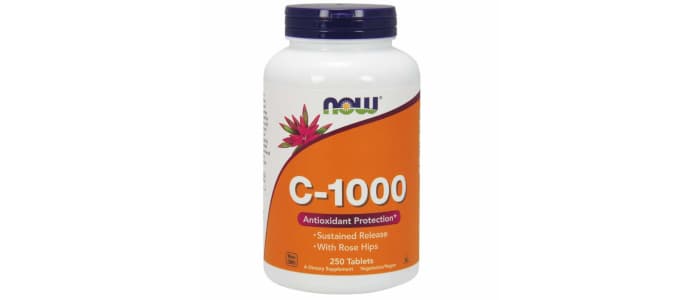
Humble vitamin C is better known for its role in staving off colds and flu, but it actually has a vital function in producing collagen in the body. Collagen helps to produce cartilage, a vital component of joints that allows range of motion, and proper functioning.
Vitamin C is a powerful antioxidant, preventing cell damage and free radicals which may contribute to easing pain and inflammation.
This essential vitamin can also be depleted in times of stress, which may be a contributing factor to TMJ.
With the damage that can be caused to the vital cartilage in your jaw when you are suffering from TMJ, vitamin C can be a useful supplement to include in your healing process.
Glucosamine
The amino sugar called glucosamine is one of the best supplements for joint health, as it helps to rebuild cartilage and improve the range of motion in the joint, along with good joint lubrication for painless, smooth movements.
Often combined with another joint helper, chondroitin, these two form a powerful pain fighting duo when it comes to helping with TMJ.
In a scientific study, glucosamine was found to reduce pain in daily activities of life even more significantly than ibuprofen, a common anti-inflammatory drug.
In addition, by promoting smoother joint movement, glucosamine can also help with the jaw ‘clicking’ associated with TMJ.
By improving the joint function and movement glucosamine and chondroitin reduce pain, swelling and inflammation associated with TMJ for better quality of life and ease in daily tasks.
B Group Complex
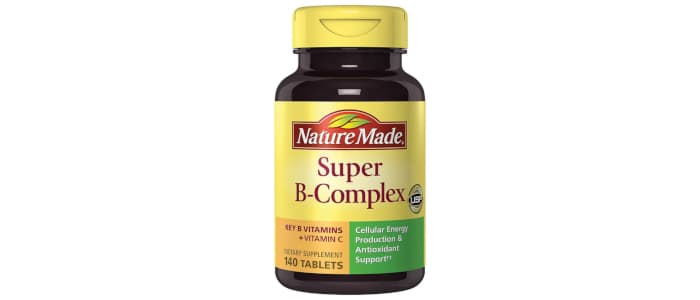
The B group complex are actually a large group of 8 vitamins, including B1, B2, B3, B5, B6, B7, B9, B12 – that are usually grouped together in supplements and often occur together in food sources.
B group complex vitamins are essential for helping our bodies unlock the fuel from our food, to provide us with energy and the ability to cope with our daily tasks.
A deficiency in any of the B vitamins can cause fatigue and promote stress, worsening the effects of TMJ.
In a vicious cycle, high stress levels also deplete the B vitamins faster, meaning our requirement is higher in times of stress.
Because TMJ can be caused by stress, and it can cause further stress once affecting us, it’s important to think about B complex vitamin supplementation when affected by TMJ.
Supplementation with a good B vitamin complex can ensure adequacy, prevent deficiency and help you control stress levels for a happier, healthier life.
With this list of best supplements for TMJ, we hope you can produce better outcomes with TMJ and improve your quality of life naturally.
Remember to consult your doctor before starting any new supplementation for your best health and well-being.
SUBSCRIBE: